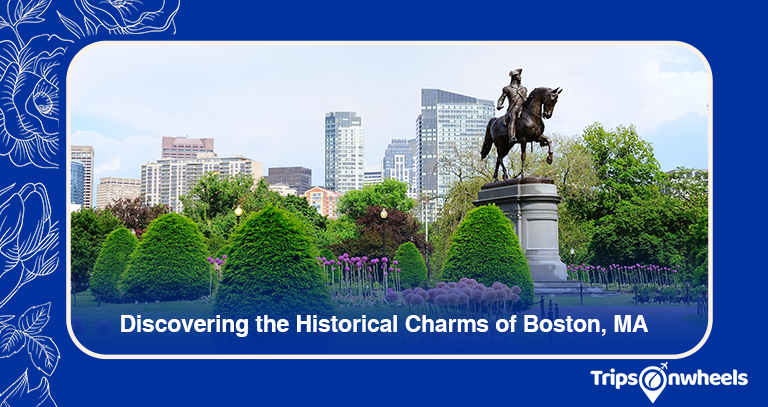Nestled along the shores of the Atlantic, Boston, Massachusetts, stands as a living testament to America’s rich history and cultural heritage. Steeped in revolutionary tales, adorned with colonial architecture, and pulsating with a vibrant energy, Boston is a city that seamlessly blends the old with the new. In this exploration of the historical charms of Boston, we embark on a journey through its cobblestone streets, iconic landmarks, and centuries-old stories that have shaped the very fabric of the nation.
Colonial Beginnings: Walking Through History

Boston’s historical journey begins in the early 17th century when English Puritans established a settlement on the Shawmut Peninsula. As we stroll through the city’s oldest neighborhoods, such as Beacon Hill and the North End, the narrow cobblestone streets whisper tales of the past. Preserved brownstone houses with gas lamps evoke an ambiance of the colonial era, transporting visitors back to a time when Boston played a pivotal role in shaping the American identity.
Freedom Trail: A Pathway Through Revolution
For a comprehensive exploration of Boston’s historical treasures, one need only follow the red-brick path of the Freedom Trail. This 2.5-mile-long trail winds its way through 16 historically significant sites, serving as a chronological guide to America’s struggle for independence. Starting at Boston Common, the oldest public park in the United States, and concluding at the Bunker Hill Monument, the Freedom Trail is a captivating journey through time.
Boston Common and Public Garden: Green Oases in the Heart of the City
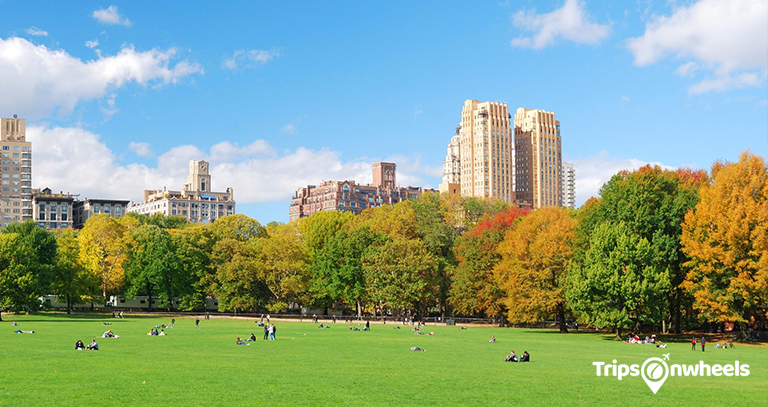
Boston Common, established in 1634, is not just a park; it’s a living testament to the city’s endurance. As the oldest public park in the country, it has witnessed gatherings, protests, and celebrations throughout history. Adjacent to the Common, the Boston Public Garden charms visitors with its Victorian-era elegance, featuring swan boats gliding across the tranquil lagoon and vibrant tulip displays in spring.
Paul Revere’s Midnight Ride: Old North Church and Beyond
A pivotal moment in American history unfolded on the night of April 18, 1775, when Paul Revere made his famous midnight ride to warn of the approaching British forces. The Old North Church in Boston’s North End was where two lanterns were displayed, signaling the approach of the Redcoats. Today, visitors can stand in the same pews and gaze at the iconic steeple, forever etched in the annals of American history.
Faneuil Hall and Quincy Market: Hubs of Commerce and Politics
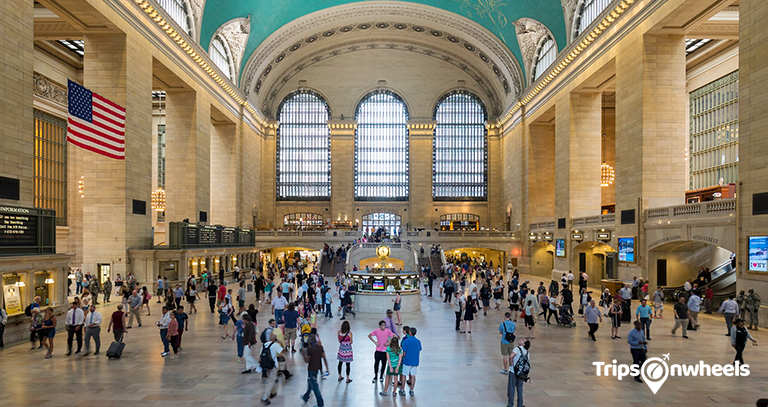
As we meander through the cobblestone streets, Faneuil Hall and Quincy Market emerge as bustling hubs that have witnessed centuries of commerce and political discourse. Faneuil Hall, also known as the “Cradle of Liberty,” hosted impassioned speeches by patriots like Samuel Adams. Today, it stands as a marketplace, offering a blend of history, shopping, and culinary delights. Quincy Market, with its vibrant food stalls, continues the tradition of serving as a gathering place for locals and visitors alike.
USS Constitution and Charlestown Navy Yard: Maritime Legends
Venturing toward the Charlestown Navy Yard, the USS Constitution, the oldest commissioned warship afloat, proudly graces the waters of Boston Harbor. Known as “Old Ironsides,” this majestic vessel played a crucial role in the War of 1812 and serves as a living museum, inviting visitors to explore its storied decks. The Charlestown Navy Yard itself is a maritime treasure trove, offering glimpses into Boston’s seafaring legacy.
Harvard University: The Cradle of American Intellectualism
A short journey across the Charles River takes us to Cambridge, where Harvard University, established in 1636, stands as a beacon of American intellectualism. Strolling through Harvard Yard, surrounded by historic buildings and shaded by centuries-old trees, one can feel the weight of academia and enlightenment that has emanated from this prestigious institution.
The Boston Tea Party Ships and Museum: Brewing Revolution
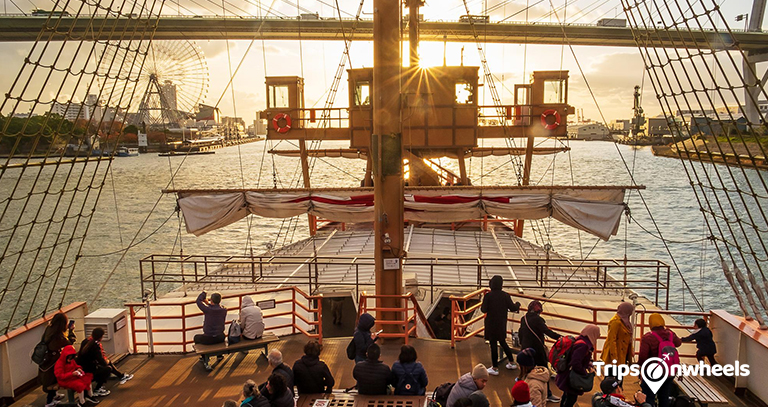
No exploration of Boston’s history would be complete without revisiting the iconic Boston Tea Party. The Boston Tea Party Ships and Museum recreates the events of December 16, 1773, with immersive exhibits and interactive experiences. Visitors have the opportunity to step aboard a replica of one of the tea ships, participate in a town meeting, and toss tea overboard, bringing to life the spirit of rebellion that fueled the American Revolution.
Copley Square and Back Bay: Victorian Elegance
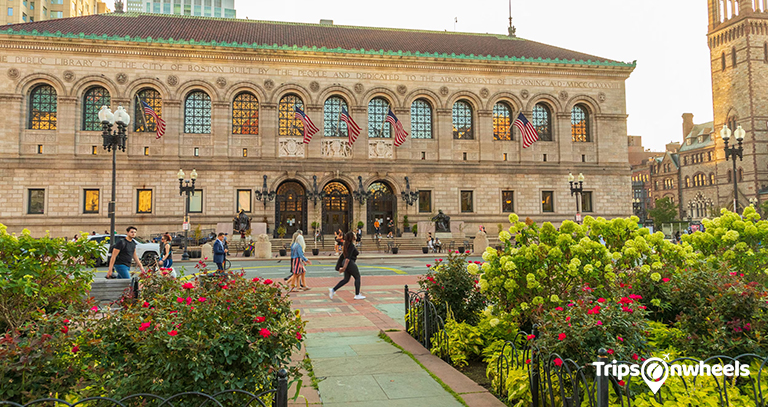
Moving forward in time, we arrive at Copley Square and the Back Bay area, showcasing Boston’s transition from colonial times to the Victorian era. The square is adorned with architectural marvels like the Boston Public Library and Trinity Church, highlighting the city’s commitment to both education and spiritual enlightenment. The tree-lined streets of Back Bay, with their picturesque brownstone homes, offer a glimpse into the elegance of 19th-century Boston.
John F. Kennedy Presidential Library and Museum: A Modern Legacy
As we delve into more recent history, the John F. Kennedy Presidential Library and Museum on Columbia Point provides insight into the life and legacy of one of America’s most iconic leaders. The museum, designed by architect I. M. Pei, showcases exhibits on Kennedy’s presidency, his family, and the challenges of the 1960s. The waterfront location offers panoramic views of Boston Harbor, connecting visitors with both history and the natural beauty of the city.
Historical Neighborhoods: Beacon Hill and the North End
Returning to Boston’s historic neighborhoods, we explore Beacon Hill and the North End in more detail. Beacon Hill, characterized by its cobblestone streets and Federal-style rowhouses, invites visitors to step back in time. The Massachusetts State House, perched atop Beacon Hill, is a symbol of architectural splendor and political significance. In the North End, Boston’s oldest residential community, visitors can savor the flavors of Italian cuisine, visit Paul Revere’s house, and experience the charming ambiance of narrow streets and historic churches.
Conclusion: A Tapestry Woven Through Time
In conclusion, Boston, Massachusetts, is a city that unfolds like a meticulously woven tapestry, each thread representing a moment in time that has shaped the nation’s history. From the colonial roots in Boston Common to the intellectual pursuits of Harvard, the maritime legends of the USS Constitution to the political fervor of Faneuil Hall, the city offers a kaleidoscope of historical charms. Boston’s ability to seamlessly blend its rich history with modernity creates an environment where the echoes of the past reverberate through the present. As you navigate the cobblestone streets, explore the historic sites, and breathe in the air of this iconic city, you become part of a narrative that transcends centuries—an experience that leaves an indelible mark on the soul and an appreciation for the enduring spirit of Boston, Massachusetts.

